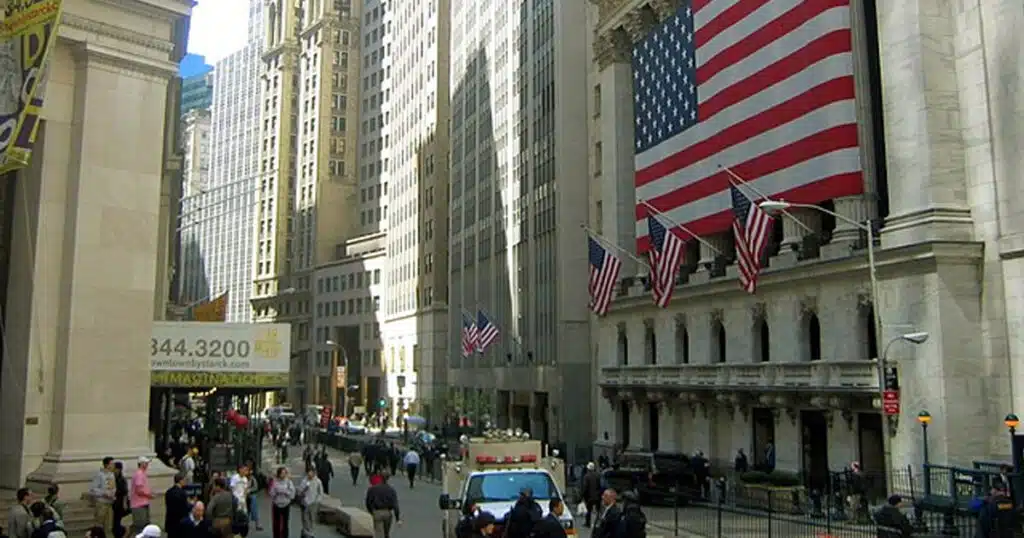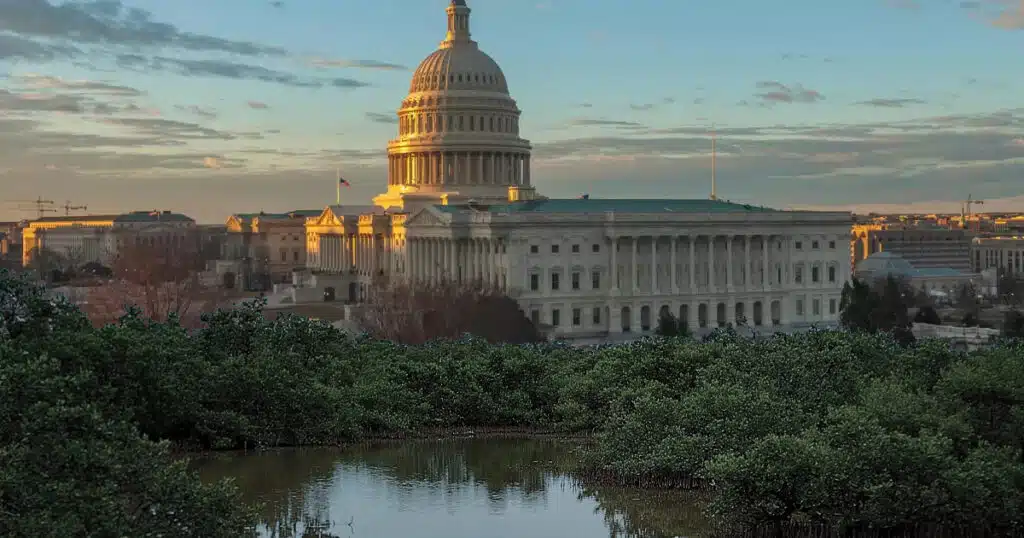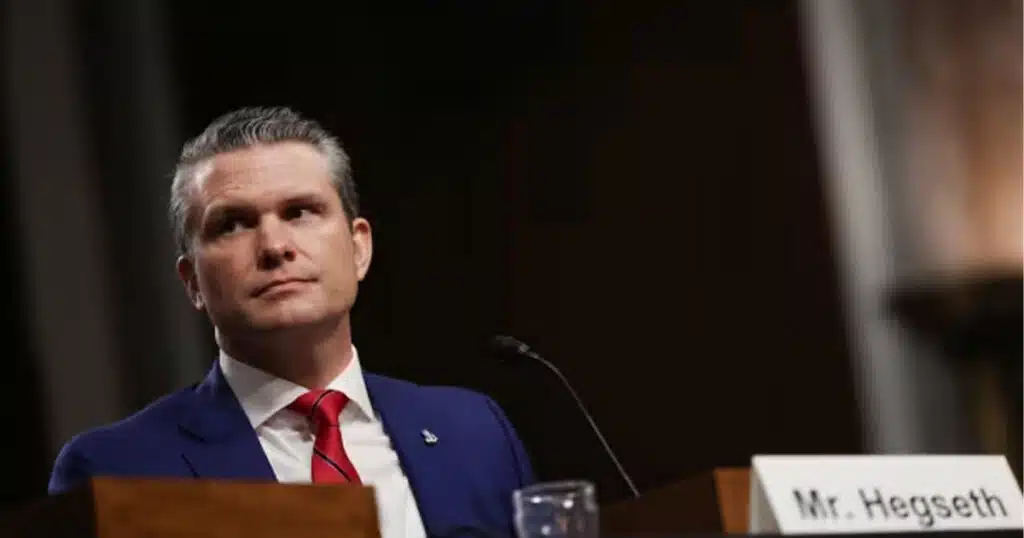
Is America Undergoing a Quiet Coup, Courtesy of Wall Street?
Editor’s note: This is a lightly edited transcript of the accompanying video from professor Peter St. Onge.
In the wake of the 2008 financial crisis, the then-chief economist of the International Monetary Fund, Simon Johnson, warned that the same dysfunctional policies he saw in basket case banana republics had taken hold in the United States.
The Daily Signal depends on the support of readers like you. Donate now
He warned that if we didn’t act fast, we would plunge into a “quiet coup” as the American financial system effectively captures the government, bailing itself out until we run out of money.
Well, we didn’t act fast. In fact, it got worse. And here we are.
In recent videos, I’ve talked about the trillion dollars of distress in the financial system, the common thread being that you, the taxpayer, will be bailing them all out. We saw this in the 2023 bank bailouts, prepaid in the dark.
Of course, given our $35 trillion national debt, we can’t afford it. But pay it we will.
At some point, it gets too big to bail out. Meaning, either hard default—they stop paying interest. Or soft default of permanent inflation.
So, first, that ignored warning. I’m no fan of the IMF, but one thing the IMF does know is
dysfunctional governments.
In his warning, Johnson detailed the typical pattern when countries collapse.
So, first, a small group of powerful elites takes over policy. This is typically financial elite, or large companies when the country has them.
Because these elites know they’ll be bailed out, they take excessive risks. An iron law of finance is that more risk pays more reward. If taxpayers are paying, you dial it to 11.
If every hand at the poker game is all-in, inevitably you lose. You pass your losses to the taxpayer, and start over with fresh chips, courtesy of the suckers.
Johnson lays out his numbers: From 1973 to 1985, America’s financial sector never earned more than 16% of domestic corporate product. But by the early 2000s, it was earning 41%.
It turned a chunk of these profits into lobbying, repealing Depression-era prudential regulations separating banking and investment banking. In other words, freeing banks to gamble with taxpayer-guaranteed funds.
Then it lobbied to raise leverage—meaning, how much banks could borrow. So, they could make bigger —again, all taxpayer-guaranteed.
The end result was the 2008 crisis, where banks made trillions in risky loans to people with no income, no assets, and no credit.
The leverage meant they had bet the farm and then some—keeping all the profits. Then, when it turned south, they sicced lobbyists on Washington to line up bailouts, using voters’ jobs as the hostage.
To be fair, it wasn’t all take: They did give back—giving politicians and their staff plum positions or even outright bribes. Then-Fed chief Ben Bernanke got $250,000 for a single speech, and Janet Yellen, now the Treasury secretary, made more than $7 million in speaking fees from the very banks she regulated.
Johnson sums it up this way: The American financial system is “desperately ill,” kept alive only by corrupt bailouts, like last year’s. He says the only solution is forced recognition of bank losses—which would bankrupt them—and then selling what’s left to new management that will not have access to bailouts.
So, what’s next?
Given the corruption, the odds of breaking up America’s megabanks are slim to none. Meaning, unless Washington repents, we’re in store for more existential financial crises, more bailouts and national debt, more running out the clock to financial catastrophe.
We missed our chance in 2008, and it will take an even bigger crisis to fix it.
Read the rest of the story with charts and all the gory details at Profstonge Weekly | Peter St Onge | Substack



